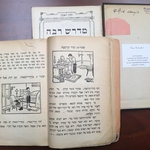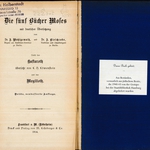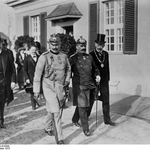Restituted Books
in LBI's Library Collection
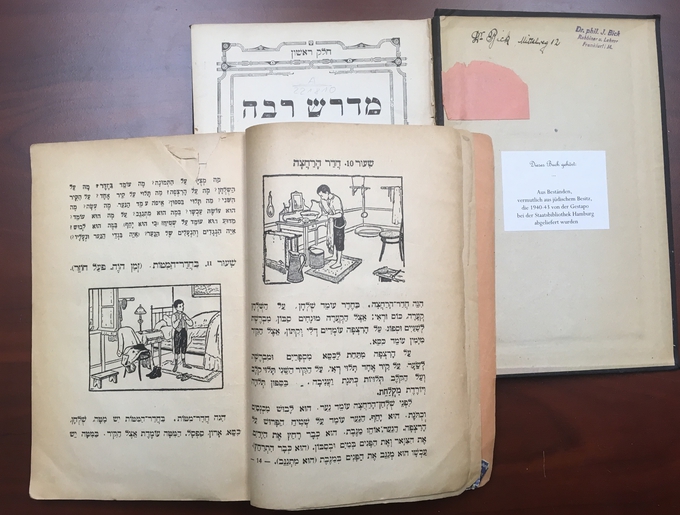
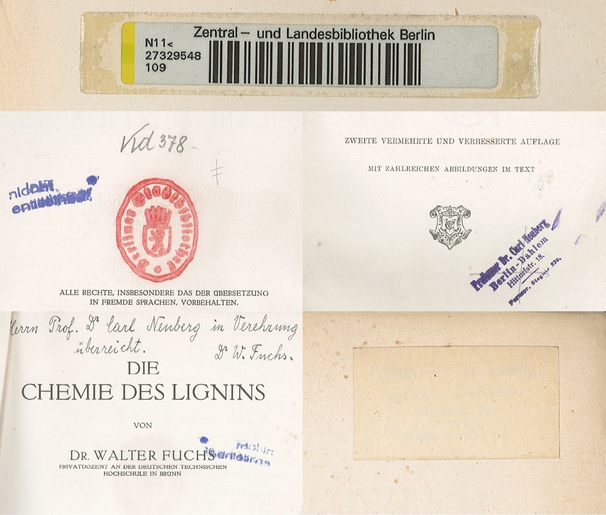
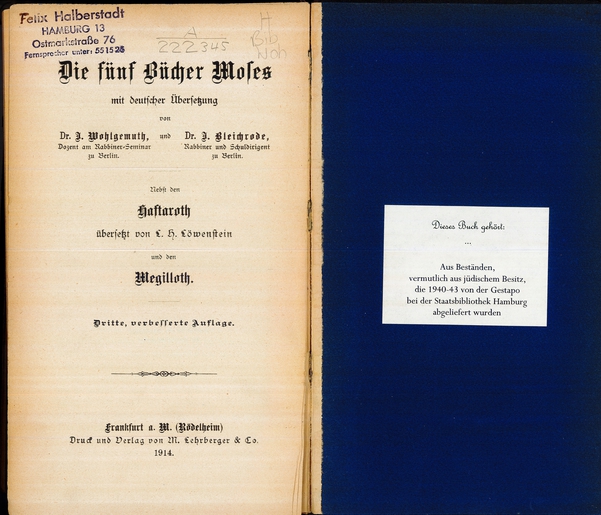
During the last few years, the library of the Leo Baeck Institute (LBI) received several book donations as a result of restitution projects in German libraries. Descendants of surviving family members decided not to keep these restituted books in their families, but to add them symbolically to our institute which was established by German-Jewish emigrants and survivors in New York in 1955.
These few book restitution cases in the LBI library collection - which are described in more detail on separate webpages accessible below (one complex case involving several restituting libraries is still in the works) - are just the tip of the iceberg. During the last decade, libraries in Germany and Austria have returned about 30,000 books to 600 owners, heirs, and institutions.
According to a provenance researcher at the Central and Regional Library in Berlin: “Most major German libraries have books stolen by the Nazis." The Central and Regional Library suspects that almost a third of its own 3.5 million books have been looted by the Nazis. Due to the scope and the often not existing or scant documentation, it won't be possible to establish the provenance for all suspicious holdings, but most likely for a significant part of them. However, the search for descendants - if they exist - is another thorny issue.
The search for lost art continues to draw headlines. The quiet hunt for the millions of books stolen by the Nazis during the Second World War will hardly enter such a limelight. The restituted books are seldom as glamorous as art works which might be worth millions of dollars. But they are symbols for the fate of their owners and are sometimes the only suddenly surfacing artifacts which connect and unite families with their relatives who were plundered, disrooted or murdered. Restituted books are often the only remaining belongings of relatives which their descendants have ever touched. A single book with personal inscriptions, stamps, bookplates, annotations as well as reading traces tells an individual story and can become a very personal encounter. Restituted books individualize the abstract numbers of the Holocaust, in a way similarly as the Stumbling Stones/ Stolpersteine project of the artist Gunter Demnig, but more personally and intimately. However, many of these personal cases enter a public discourse as well. Many cases are publicized through the restituting organizations, in related blogs, in local newspapers - and now also through the library of the Leo Baeck Institute in an additional twist.
The recent restitution of cultural assets goes back to the establishment of the 1998 Washington Conference Principles on Nazi-Confiscated Art. Since then, the governments of Germany and other European countries have worked to locate, to document, and to return Nazi confiscated or looted art, books, and other objects to Holocaust survivors and their descendants.
In Germany, the Washington Principles were implemented through a "Joint Declaration" in 1999 as well as through continuously updated Guidelines ("Handreichung"). The German Lost Art Foundation (Deutsches Zentrum Kulturgutverluste) in Mageburg serves as the national and international contact partner for all matters pertaining to illegal seizure of cultural assets in Germany in the 20th century. Its work is facilitated by the German Lost Art Database, a central registry which was established based on the recommendations of the Washington Principles. The German Lost Art Foundation sees itself as a hub for developing guidelines and providing counseling, documentation, funding of projects, and networking. It works closely with its counterparts in other European countries. The Commission for Looted Art in Europe plays a similar role on a European level and has established the European Looted Art - Central Registry.
The provenance database Looted Cultural Assets is a joint project founded in 2016 by libraries which are researching Nazi looted books in their holdings. In 2020/2021, this provenance database contains more than 32,000 references to former owners of books as well as information on approximately 10,000 individuals and institutions.
Literature:
Milton Esterow, “The Hunt for the Nazi Loot Still Sitting on Library Shelves,” The New York Times, January 14, 2019, sec. Arts
Anders Rydell. The Book Thieves: The Nazi Looting of Europe’s Libraries and the Race to Return a Literary Inheritance. New York: Viking, 2017. LBI Library, call number st 8258
